We live in an age of information. As more and more data floods onto the internet on a daily basis, it becomes a struggle to track pertinent, relevant details. Much of what you encounter is just noise, but how do you reliably take notes without interrupting the task at hand?
Both Evernote and Google Keep provide solutions to that particular problem, but which is the best option? This guide will break down Google Keep vs Evernote to help you make the right decision.

User Interface
When it comes to note-taking, few elements are more important than the user interface. Organizing your notes and being able to find them at a glance is vital to your productivity. With that in mind, Google Keep and Evernote are quite different.
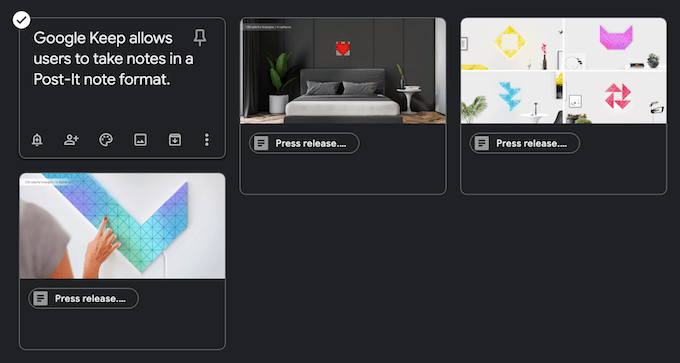
Google Keep organizes notes in a post-it note fashion, allowing users to see a brief synopsis of what each note contains at a glance. Users can create four different types of notes: text, image, drawing, and lists. You can also add reminders to notes, color code them, and create custom tags.
Google Keep is simple, without a lot of unnecessary bells and whistles. It provides users with a simple way to take notes and little else.
When it comes to finding notes, users have two options: the default Grid View and a List View. Users can also sort between regular notes and reminders. For sorting features beyond this, users need to employ custom tags.

Evernote is organized more like a traditional notebook and has far more complex features than Google Keep. Notes are organized into various notebooks, which can then be broken down further into different sections. There are more than a dozen templates to choose from for each note, multiple formatting options, tags, and much more.
Organization is also far more customizable, too. Users can sort by the date the note was created or the date it was updated, by title, and by tag. More features are available to Evernote users, but this requires a subscription.
Collaboration
Collaboration is the next most vital part of notetaking. When using Google Keep vs Evernote for professional or student work, users need to be able to work together and view the same notes.
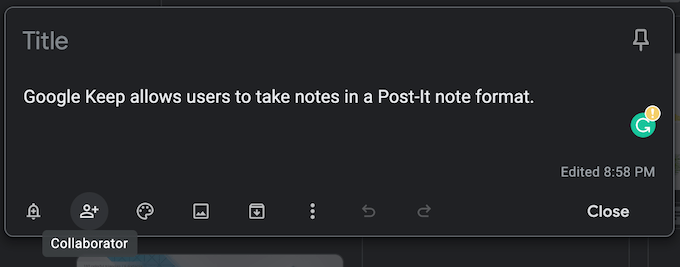
Google Keep makes collaboration as simple as sharing a Google Doc with someone. Within the note is an icon with a plus symbol beside it. Click this and type in the email address of the collaborator. Once they receive the invitation, the collaborator can view and edit the note.
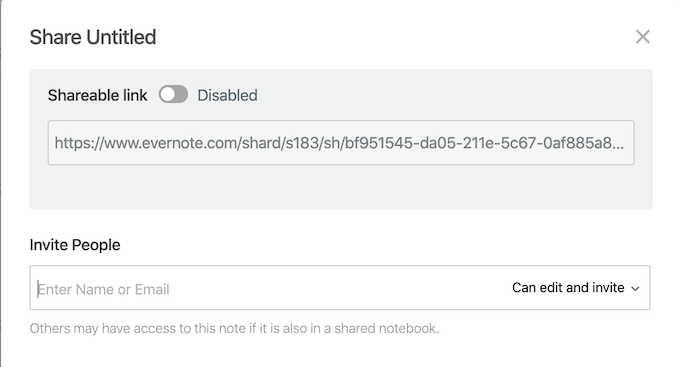
Evernote makes collaboration a bit more difficult. To share a note or work with someone else, click the Share button at the top-right of the screen and enter their name or email.
Users can also create shareable links that allow collaborators to view and edit notes. That said, the process requires several more steps than Google Keep does.
Extensions & Ease of Use
One of the many strengths of services like Google Keep and Evernote is how easy it is for users to save websites, images, and video clips from the web. If you come across something relevant to your research, you don’t need to copy the link and create a new note. Just click the extension or add-on icon to automatically create a note.
Both Google Keep and Evernote have extensions that work in Google Chrome and Firefox. There are also apps for Android and iOS that expand this functionality to mobile users.
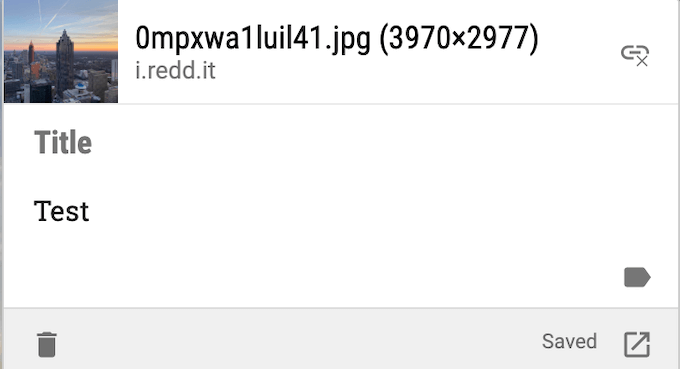
Google Keep automatically creates a note when you activate the extension, but it does give you the option to title the note and include details about what the note entails. It’s quick and easy, which is exactly what many users need when searching out research.
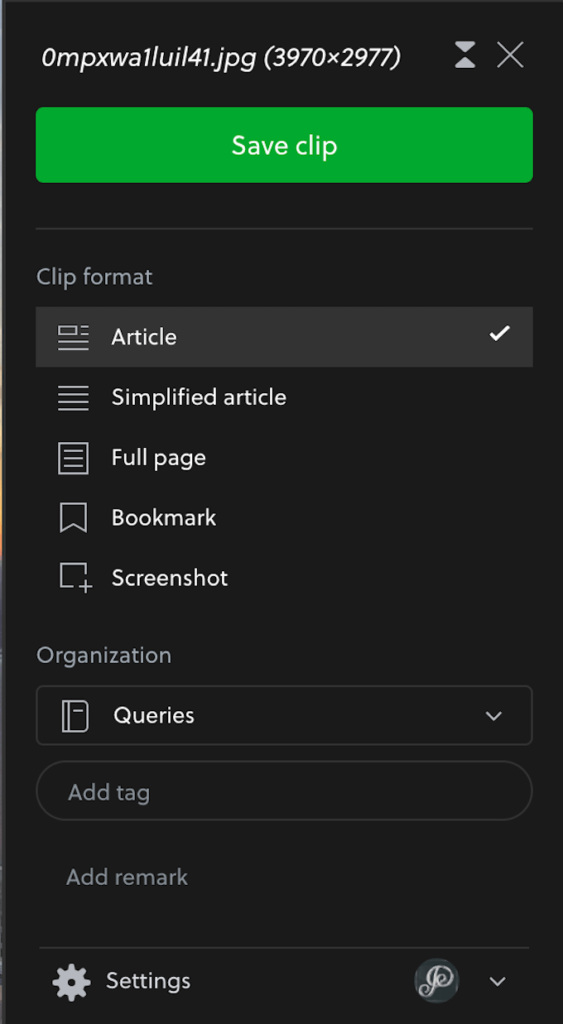
The Evernote Web Clipper functions in much the same way, but it gives users more options when saving content. You can save a clip as an article, a simplified article, a full page, a bookmark, or a screenshot. You can also add custom tags and choose what notebook to save it to before finalizing your choice.
As before, Evernote adds more steps and options to an otherwise simple process. If you want more choices in how notes are saved, Evernote is the way to go—otherwise, Google Keep wins out in simplicity.
Integration
Google Keep integrates seamlessly with other Google Products. You can open Keep from within other applications to take notes without leaving the service you’re already in. If you primarily work within the Google ecosystem, then this is perfect for you—but if other apps are part of your routine workflow, then Evernote may be the better choice.
Evernote integrates with a number of third-party applications including Gmail, Outlook, Salesforce, Slack, and many more. Although it isn’t as streamlined or easy to use as Google Keep’s integration, Evernote caters more toward power users.
Google Keep vs Evernote: Which One is Best?
In the end, both programs have powerful features that make them worth consideration. However, Google Keep is more strictly a note-taking app, while Evernote can be used for team collaboration, drafting documents, and much more. Google Keep is best used by students or more casual notetakers, while Evernote is more at home in a professional context.
Do you use Google Keep or Evernote? Which note-taking service do you prefer, and is there a better alternative out there? Let us know in the comments below.